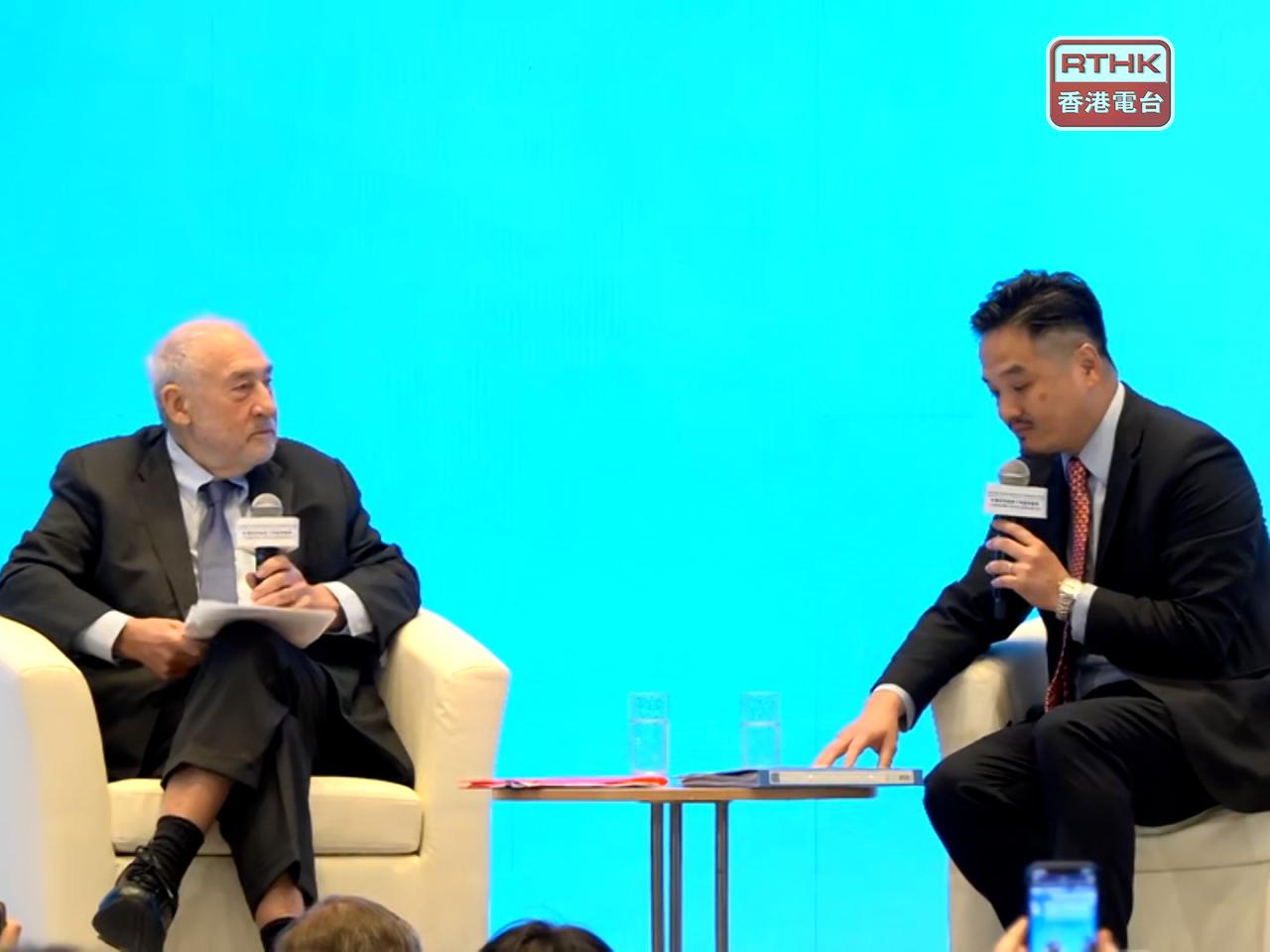A Nobel Prize-winning economist said on Tuesday he is "somewhat optimistic" as the global trade order transitions into a so-called "G minus One" framework that sees countries work together without a great power.
Speaking at an economic forum in Admiralty, Joseph Stiglitz, a professor at the Columbia University, also suggested global economic inequality might be reduced under such an order, which might benefit the developing nations.
Addressing some 500 participants at a fireside chat, he said that trade policies imposed by the US Trump administration had thrown "a hand grenade" into world order, which will not be reversed.
But Stiglitz noted that there had also been an "enormous amount of enthusiasm" that a new world order could see nations come together and address economic and financial inequalities – with more regional and targeted deals.
"Agreements will be more limited, for instance, in the range of products and countries," he told participants, many of whom scholars.
"There will be more regional agreements.
"There will [also] be more green agreements for the green transition, but they may be deeper in some ways. I hope there will be green agreements that will involve investment, not just trade, but investment and research and technology.
"It may be that [by] stepping back from the failures of the era of hyper-globalisation and the imbalances of power, we may be able to construct smaller agreements that actually work for more countries around the world," Stiglitz said.
Pointing out US withdrawals from several global agreements and organisations, he said Washington had also dropped out of the G20 summit to be held in South Africa on Saturday and Sunday.
The Nobel Memorial Prize laureate in economic sciences, who has served as chief economist at the World Bank, added that the new trade order would be less impacted by "neoliberalism", which is an economic ideology as well as policy model that focuses on free trade and globalisation.
He said more nations would also look to enhance their own industrial policies.
Stiglitz also noted that the US trade deficit might not become smaller but larger – as a consequence of the imposition of the tariffs by US President Donald Trump.
"In terms of the multilateral trade deficit, which is related to the disparity between aggregate savings and aggregate investment, domestic savings is going to go down," he said.
"And an important component of domestic savings is public savings, government savings.
"What [Trump] calls his 'Big Beautiful Bill' has trillions of dollars of new deficits... And that means that gap will get larger, so we should expect that the multilateral trade deficit may get larger," he said.
The "One Big Beautiful Bill" was signed into law by Trump in July, covering tax cuts and funding boosts for military expenditure and border security and predicted to add US$3.3 trillion to the country's already high debt burden.
Stiglitz's remarks also came as Trump last week signed a federal government spending bill to bring an end to the longest government shutdown in the US history.
Under the new spending bill, the US federal government would continue to add roughly US$1.8 trillion a year to its US$38 trillion in debt.





